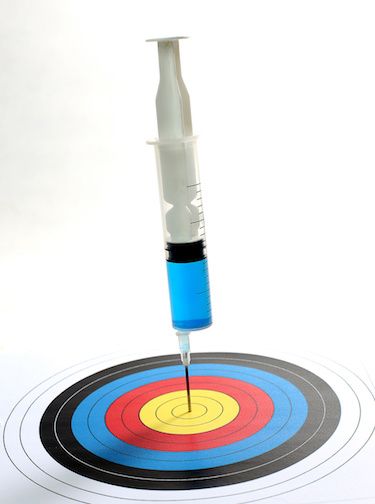FDA Approves Second CAR T-cell Therapy
The "new era of personalized cancer therapy” is here: effective, novel, and expensive.

In a monumental step toward personalized medicine, the U.S. Food & Drug Administration (FDA) has granted an approval to the chimeric antigen receptor (CAR)-modified T-cell therapy known as axi-cel (axicabtagene ciloleucel; Yescarta) for patients with certain types of lymphoma.
The novel T-cell therapy was approved after showing high levels of complete remission (CR) in a phase 2 study known as ZUMA-1. According to the FDA, the objective response rate (ORR) with axi-cel was 72% and the CR rate was 51% (95% CI, 41%-62%). The median durability of CRs was not yet reached (95% CI, 8.1-not estimable). At a 6-month analysis, 80% of patients treated with axi-cel remained alive.
Although ZUMA-1 was a single-arm study, work has been done to compare axi-cel to the current standard of care for patients in a study known as SCHOLAR-1. In a standardized comparison of the two trials, the ORR was 74% with axi-cel versus 20% with the standard of care (odds ratio, 7.97; P <.0001). Moreover, the CR rate with axi-cel was 51% compared with just 6% in SCHOLAR-1.
“Engineered cell therapies like Yescarta represent the potential for a changing treatment paradigm for cancer patients,” David Chang, MD, PhD, Worldwide Head of Research and Development and Chief Medical Officer at Kite, said in a statement. “Together, Gilead and Kite will accelerate studies of CAR T therapy in multiple blood cancers and advance other cell therapy approaches for solid tumors, with the goal of helping patients with diverse cancers benefit from this new era of personalized cancer therapy.”
The novel immunotherapy manufacturing process requires several steps, for which hospitals systems will need special training and certification. Each treatment of the T-cell therapy is customized using a patient's own immune cells, starting with T cells collection via apheresis, shipment to a manufacturing facility, and genetic modification of the cells to express a CAR specific to CD19, which is commonly over-expressed in B cell malignancies allowing the modified immune cell to target and kill the lymphoma cell.
Kite Pharma, which was recently acquired by Gilead, plans to market axi-cel at a list price of $373,000. The company plans to manufacture the treatment in El Segundo, California, which was the facility used for the ZUMA-1 trial, wherein cells were successfully manufactured 99% of the time and the median turnaround time was 17 days.
Axi-cel was approved with a boxed warning regarding cytokine release syndrome (CRS), which occurred in 13% of patients in the ZUMA-1 trial. To address the risk of CRS and neurologic toxicities, which 28% of patients experienced, the FDA approved axi-cel with a risk evaluation and mitigation strategy (REMS), which includes elements to assure safe use (ETASU). Additionally, certification and training will be required before hospitals will be cleared to administer the T cell therapy. The required training will focus on identifying and managing CRS and neurologic toxicity.
“The FDA approval of Yescarta is a landmark for patients with relapsed or refractory large B-cell lymphoma.” Arie Belldegrun, MD, FACS, Founder of Kite, said in a statement. “We must also recognize the FDA for their ability to embrace and support transformational new technologies that treat life-threatening illnesses. We believe this is only the beginning for CAR T therapies.”
Axi-cel is the second CAR T-cell therapy approved by the FDA, with the first, labeled tisagenlecleucel (Kymriah), approved in late August for patients with acute lymphoblastic leukemia, a rare blood cancer commonly affecting children. The FDA anticipates that more agents in this class will gain approval in the future and is taking steps to establish a system for evaluation of these adaptive T-cell therapies. Axi-cel was approved following a priority review and under the FDA's breakthrough therapy program.
"We will soon release a comprehensive policy to address how we plan to support the development of cell-based regenerative medicine. That policy will also clarify how we will apply our expedited programs to breakthrough products that use CAR-T cells and other gene therapies," Scott Gottlieb, MD, FDA Commissioner, said in a statement. "We remain committed to supporting the efficient development of safe and effective treatments that leverage these new scientific platforms.”
Related Coverage:
Peter Bach, MD, On Logistical Considerations of Treating with Kymriah
Kymriah: an (Expensive) Precision Medicine Breakthrough
Talking Value, Culture, and CAR-T with the CMO of Mayo Medical Labs